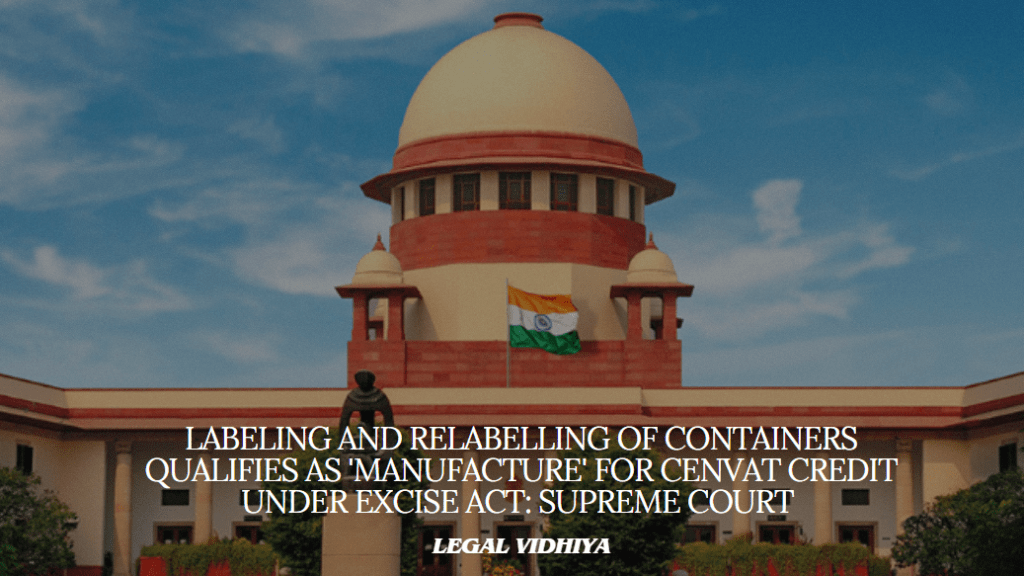
In a landmark decision, the Supreme Court of India has ruled that the processes of labelling and re-labelling containers, as well as affixing retail sale prices, qualify as ‘manufacture’ under the Central Excise Act. This judgment, delivered in the case of Commissioner of Central Excise Belapur vs Jindal Drugs Ltd., has significant implications for the eligibility of CENVAT credit.
The bench, comprising Justices BR Gavai and Surya Kant, upheld the decision of the Customs, Excise and Service Tax Appellate Tribunal (CESTAT) which had earlier ruled in favor of Jindal Drugs Ltd. The core issue revolved around whether the activities performed by the company amounted to ‘manufacture’, thereby entitling them to avail of CENVAT credit.
In their ruling, the Supreme Court emphasized that the definition of ‘manufacture’ under Section 2(f) of the Central Excise Act includes any process that, in relation to goods specified in the Third Schedule, involves packing, repacking, labeling, or re-labelling. This broad definition aims to cover all essential processes that render goods marketable.
The Court further noted that these activities, particularly in the context of the goods listed in the Third Schedule, impart new characteristics to the products, making them ready for the retail market. Consequently, such processes should be recognized as manufacturing activities for the purpose of CENVAT credit.
This judgement clarifies ambiguities regarding the classification of certain industrial activities and ensures that businesses involved in similar processes can avail of CENVAT credit, thereby providing them with a crucial tax advantage. The decision is expected to have wide-ranging effects on the manufacturing sector, particularly those engaged in pharmaceuticals, FMCG, and other consumer goods industries.
Case Details: Commissioner Of Central Excise Belapur Vs Jindal Drugs Ltd.
Name – Supriya, course – B.A.LL.B, S.S khanna Girls’ Degree College, UoA, Intern under legal Vidhiya.
Disclaimer: The materials provided herein are intended solely for informational purposes. Accessing or using the site or the materials does not establish an attorney-client relationship. The information presented on this site is not to be construed as legal or professional advice, and it should not be relied upon for such purposes or used as a substitute for advice from a licensed attorney in your state. Additionally, the viewpoint presented by the author is of a personal nature




0 Comments